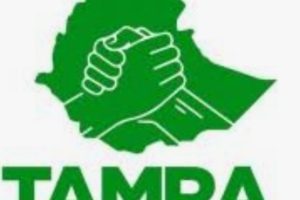
ADDIS ABABA- National Electoral Board of Ethiopia (NEBE) is coming up with a draft election law which makes it mandatory for national political parties to have at least 10,000 registered members to be eligible to take part in elections.
The previous requirement was 1500 members. Regional parties will also be required to have at least 4000 members, up from the current 750.
In addition, the draft draft law also states that, except for ministers and government appointees, public servants who want to compete in elections for parliamentary seats are required to resign from their job during election times.
While some political parties welcomed the draft law claiming it would make political parties become stronger and competitive, others fear the move would narrow the political space.
Public Relation Head of Ethiopian Citizens for Social Justice (ECPSJ) Natinael Feleke tells The Ethiopian Herald that since the beginning, ECPSJ has been taking part in the preparation process of the draft election law.
“The process has been participatory. Our party believes that political parties should have a strong public base. Hence, it is logical for us to accept the draft law which requires a given party to have 10,000 registered members,” he adds.
ECPSJ also agrees with the article in the draft law that requires civil servants to temporarily leave their work to become a candidate for public office as the election might intermingle with public service, as to Natinael.
Social Democratic Party (SDP) Chairman Professor Beyene Petros, on the other hand, fears the new law would narrow the political space and says his party has submitted its complaints to NEBE.
The law is a set back to the process, Beyene says adding, there is something behind the draft law as it is set to hamper the participation of opposition parties in the election process.
“This is not because opposition parties lack supporters or members, the challenge here is finance. In my opinion,
it seems to me that the law is designed for political parties with strong financial capacity.”
It is a very arduous task for other parties especially in a situation where there is no political stability in the country, Professor Beyene adds.
It is also difficult for candidates who are public servants to take care of their household during election times if they resign from their jobs, he says adding, while the parties are discussing the draft law, the above-mentioned issues are not tabled for discussion.
Tigistu Awelu, Chairman for Unity for Democracy and Justice Party says these days, some parties with a base in some states are prohibiting others from going there and promoting their ideologies. “Hence, this makes it difficult to encourage people to become members of national parties.”
Sultan Kasim, Haromaya University Law Expert says the draft law has amended many articles from the previous one.
“It seems the intention is to encourage parties with the same ideologies to form a merger and this would enable them to gain wider public support.”
On the other hand, he says, the draft law would also to some extent hamper the right to organize. Because the number limit particularly discourages parties that are not organized based on identity.
The article that requires public servants who want to become a candidate to temporarily leave their job during elections may also influence their political participation, he adds.
Birtukan Midekissa, Chair of the Election Board said the articles were intended to separate government’s responsibilities with that of responsibilities of political parties; assure fair election process and ensure the neutrality of the civil servants over the election.
Regarding the requirements for national and regional political parties, she said the move aimed at creating strong and competitive political parties.
The Ethiopian Herald August 1/2019
BY GIRMACHEW GASHAW





